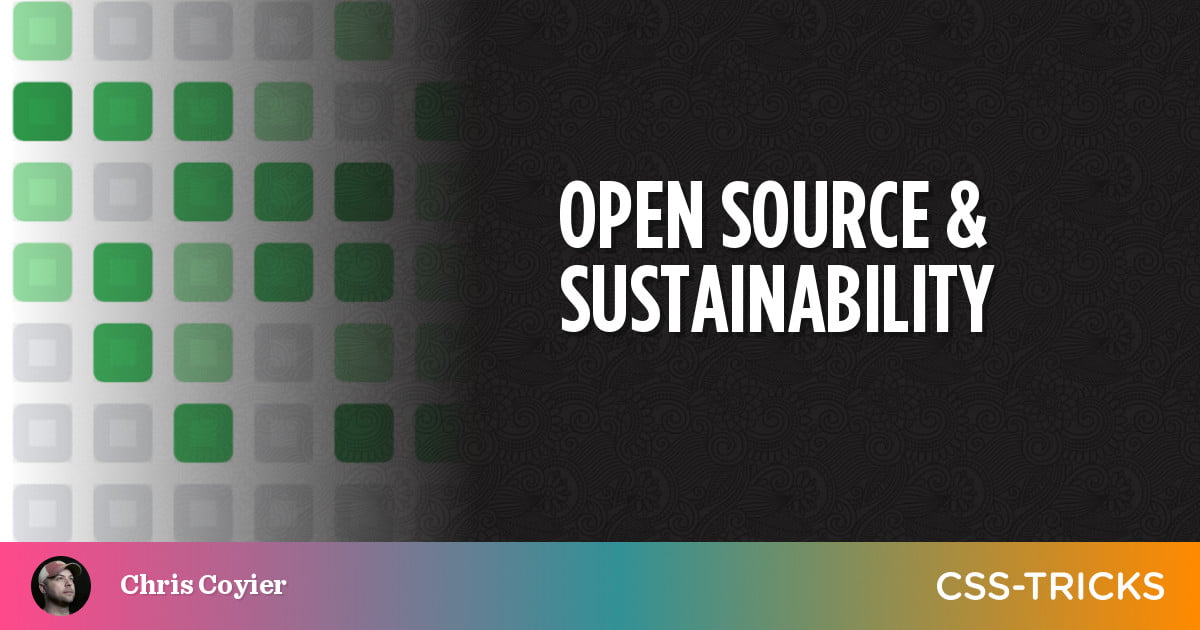
It’s a god-damned miracle to me that open source is as robust as it is in tech. Consider the options. You could have a job (or be entrepreneurial) with your coding skills and likely be paid quite well. Or, you could write code for free and have strangers yell at you every day at all hours. I like being a contributing kinda guy, but I don’t have the stomach for the latter.
Fair enough, in reality, most developers do a bit of coding work on both sides. And clearly, they find some value in doing open-source work; otherwise, they wouldn’t do it. But we’ve all heard the stories. It leads to developer burnout, depression, and countless abandoned projects. It’s like we know how to contribute to an open-source project (and even have some ground rules on etiquette), but lack an understanding of how to maintain it.
Dave, in “Sustaining Maintaining,” thinks it might be a lack of education on how to manage open source:
There’s plenty of write-ups on GitHub about how to start a new open source project, or how to add tooling, but almost no information or best practices on how to maintain a project over years. I think there’s a big education gap and opportunity here. GitHub has an obvious incentive to increase
num_developersandnum_repos, but I think it’s worthwhile to ease the burden of existing developers and increase the quality and security of existing repos. Open source maintenance needs a manual.
That’s a wonderful idea. I’ve been around tech a hot minute, but I don’t feel particularly knowledgeable about how to operate an open-source project. And frankly, that makes me scared of it, and my fear makes me avoid doing it at all.
I know how to set up the basics, but what if the project blows up in popularity? How do I manage my time commitment do it? How do I handle community disputes? Do I need a request for comments workflow? Who can I trust to help? What are the monetization strategies? What are the security concerns? What do I do when there starts to be dozens, then hundreds, then thousands of open issues? What do I do when I stop caring about this project? How do I stop myself from burning it to the ground?
If there was more education around how to do this well, more examples out there of people doing it well and benefitting from it, and some attempts at guardrails from the places that host them, that would go a long way.
Money is a key factor. Whenever I see success in open source, I see actually usable amounts of money coming in. I see big donations appropriately coming into Vue. I see Automattic building an empire around their core open-source products. I see Greensock having an open-source library but offering membership and a license for certain use cases and having that sustain a team long-term.
If you’re interested in monetizing open-source, Nicholas C. Zakas has been writing about it lately. It’s a three-parter so far, but starts here in “Making your open source project sponsor-ready, Part 1: Companies and trust”:
While it’s possible to bring in a decent amount of money through individual sponsorships, the real path to open source sustainability is to get larger donations from the companies that depend on your project. Getting $5 to $10 each month from a bunch of individuals is nice, but not as nice as getting $1,000 each month from a bunch of companies.
I think it would be cool to see a lot more developers making a proper healthy living on open source. If nothing else it would make me feel like this whole ecosystem is more stable.
Update: I wrote this before the whole Marak Squire kerfuffle, but I feel that just underscores all this.






